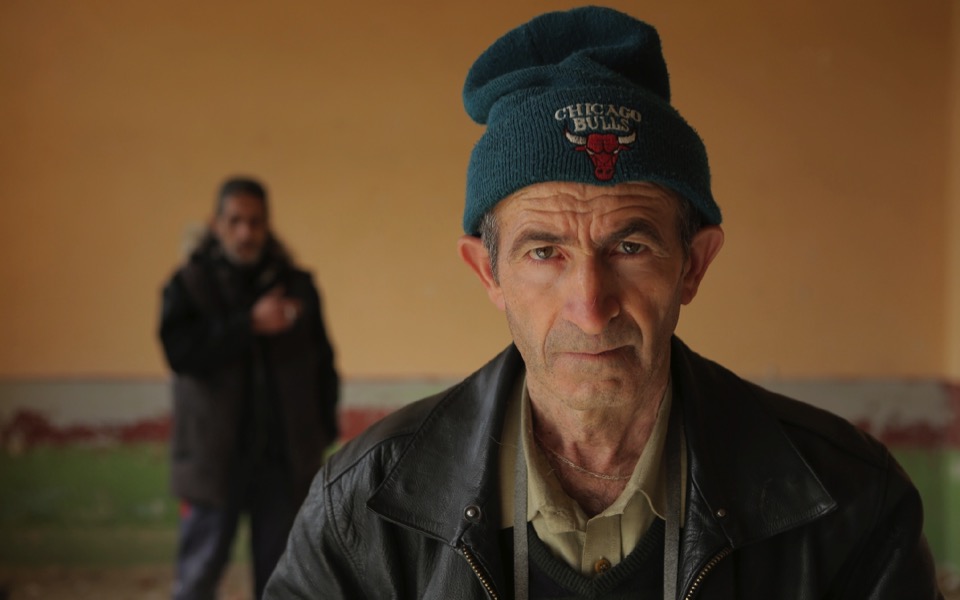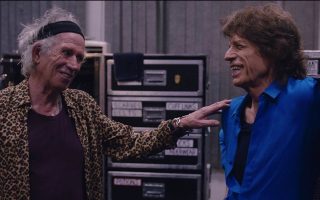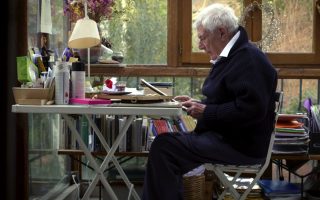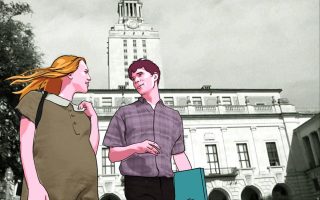Bulgarian postman with a noble message

Ivan, the postman of a mostly deserted Bulgarian village on the border with Turkey, is running for mayor on a rather unconventional message: If he wins the election, he will welcome Syrian refugees, who now creep silently through the rural terrain, so they can settle in the village’s many vacant, dilapidated properties and breathe new life into the settlement.
Golyam Dervent (pop. 38) – known as as the “great gate” due to its location – is the setting of Tonislav Hristov latest documentary “The Good Postman,” which is screening at the ongoing Thessaloniki Documentary Festival and resembles a microcosm of the drama that has been unfolding in Europe since the outbreak of the Syrian refugee crisis. Bulgaria has joined other nations in the Balkan region in taking a hardline response to the influx of migrants and asylum seekers into the continent. Less than two decades since removing a massive border fence designed to keep people in, authorities in the former Soviet satellite have built a new one along the border with Turkey – this time to keep people out.
Shot over the course of a regional election campaign, the camera follows Ivan, a gentle-mannered, silver-haired man who lives alone, pitting his inclusive, progressive vision against the xenophobic, we-had-it-better-under-communism alternative put forward by his rival, who resembles a washed-up Hollywood has-been. (In what is probably the film’s most funnily surreal moment, the latter delivers a confused speech from the village cafe patio overlooking a vacant field to the futuristic sounds of a vintage Casio keyboard synthesizer). The elderly villagers’ reactions are mixed.
“The Good Postman” premiered in 2016 at Amsterdam’s International Documentary Film Festival (IDFA), where it was nominated for Best Feature-Length Documentary, before screening at the 2017 Sundance Film Festival.
Beautifully crafted, with stunning wide-screen cinematography and a wonderful score by Petar Dundakov, Hristov’s documentary, his fifth, exposes the strange world of small-town politics, the estrangement of the political elites, the stinging poverty in the EU’s backyard, the harrowing misinformation surrounding the migration debate, and the nuances of the human character.
“I heard on the news that they’re bad people who kill Bulgarians,” a young girl is heard saying on a TV news bulletin playing in the background. “But maybe not everyone is bad,” she adds.
One thing bound to draw protests from purists is that the Bulgarian filmmaker, and writer Lubomir Tsvetkov, appear to have staged at least some of the scenes. “Minimal interference doesn’t mean maximum reality. It can actually be the total opposite. Sometimes you have to interfere to get as close to the truth as possible,” Tsvetkov said in a recent interview.
The election result (spoiler alert) is not what any of them would have hoped for. Although it’s hard to see how things could change in Golyam Dervent. Ten years after joining the European Union, Bulgaria remains one of the bloc’s poorest and most corrupt members. Meanwhile, public opposition to immigration is strong. In a recent survey, 73 percent of Bulgarians said they would back a total ban on citizens of Muslim-majority nations entering their country. The same poll found that 77 percent view immigration as a threat to the country, up from 47 percent in 2015.
The Swiss guards of EU border agency Frontex seen patrolling for migrants traipsing through the rural terrain are unlikely to move out anytime soon.
“The Good Postman,” John Cassavetes Theater, Tuesday, March 7, 3.15 p.m. and Frida Liappa Theater, Wednesday, March 8, 8.30 p.m.





